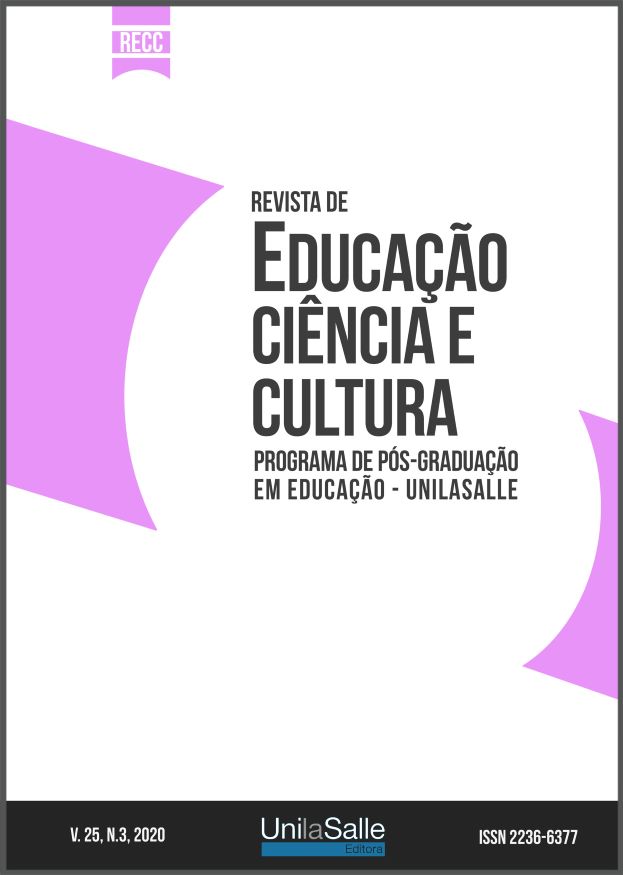The importance of interculturality and the perspective of complexity in the teacher training process
DOI:
https://doi.org/10.18316/recc.v25i3.6431Keywords:
Complexity, Interculturality, Teacher Training.Abstract
This work reflects on the relevance of studies of intercultural education and the theory of complexity in teacher education environments. To this end, it was methodologically based on a bibliographic study with a qualitative and exploratory approach, whose dimension was based on the concepts of CANDAU (2011, 2012); MORIN (1990, 1998, 2000, 2001, 2015); MORAES (2012a, 2012b, 2015); PETRAGLIA (2011, 2012, 2013) among others. Understanding the training of teachers, both initial and continuing, is essential for the redefinition of the teaching role in the face of adversity. However, professional performance must value the human being in all its multi-dimensionalities. Through training, teachers will have the opportunity to learn, learn, experience, and develop an effective practice at school, contemplating interculturality and complexity. Sticking to differences and specificities and fully recognizing and respecting human beings is to value the wealth of human diversity that exists on our planet and, from there, to promote inclusion. The overcoming of the linear and disciplinary view, of the look that separates, fragments, and compartmentalizes the phenomena of the universe, requires from educators a new view that proposes to students a notion of the whole, conceiving it as integrated parts, and that the whole composes the parts. For teachers to stop reproducing crystallized, prejudiced speeches and to contribute to complex and intercultural education, they need to conceive the training process connected to the development of their practice and have access to theoretical and reflective understanding.
Downloads
Published
Issue
Section
License
Authors must submit their manuscripts to be published in this journal agree with the following terms:Authors maintain the copy rights and concede to the journal the right of first publication, with the paper simultaneously licensed under the License Creative Commons attribution that permits the sharing of the paper with recognition of authorship and initial publication in this journal.
Since the articles are presented in this journal of public access, they are of free use, with their own attributions for educational and non-commercial purposes.
The Periodic Journal of Education, Science and Culture in http://www.revistas.unilasalle.edu.br/index.php/Educacao was licensed with a Creative Commons - Attribution - Noncommercial 3.0 Not Adapted.


